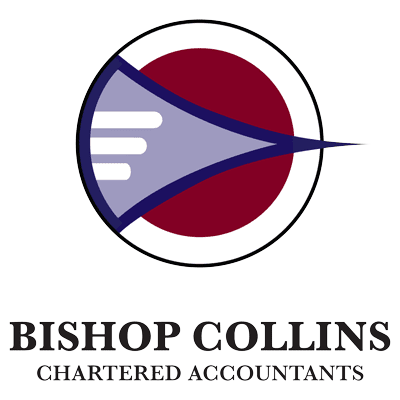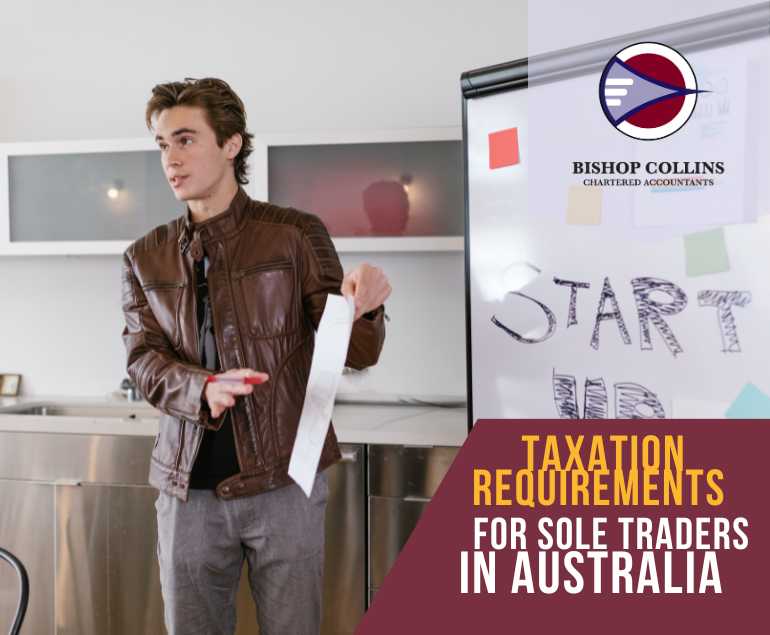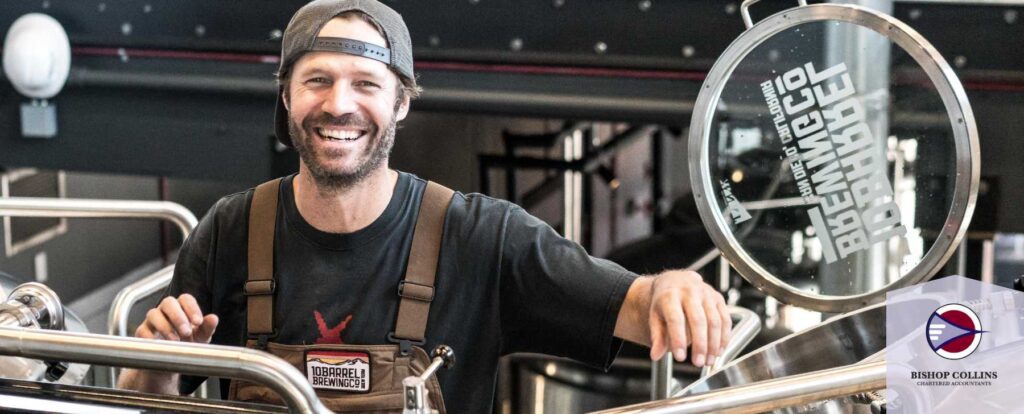Starting a business can be daunting, no doubt. Having spent 20 years consulting on business start-ups I’d like to take you through the journey of commencing a business, and of course run through the common questions that people have when starting out.
Often people want to give it a try using the simplest and cheapest structure before they spend money on expensive company setups, so a sole trader is usually that first step into business. It should be said that, depending on the business, this may not be the wisest choice of structure depending on your circumstances so I will also discuss this later in the article.
What is a Sole Trader and How are They Taxed in Australia?
A Sole Trader is an individual who operates a business in their personal name. There is no legal distinction between the owner and the business. This means that if you start trading as a sole trader, everything is in your personal name, the trading name, the business assets and of course the liabilities associated with operating the business, which unfortunately includes the tax you will have to pay.
Just like a company or an individual, a Sole Trader is subject to income tax, but unlike a company a Sole Trader’s income tax is calculated as part of their personal income tax return, rather than a separate one like a company. Additionally, Once a sole trader is bringing in over $75K per annum, they must register for and pay Goods and Services Tax.
 How to Register for an Australian Business Number (ABN) as a Sole Trader
How to Register for an Australian Business Number (ABN) as a Sole Trader
From a practical standpoint, you as the business owner will set up a bank account in your personal name and start operating the business. You will need to register for an Australian Business Number (ABN) and have a Tax File Number (TFN) to operate as a sole trader in Australia, although most people already have a TFN because any job will require this before you are paid.
Next, sole traders usually register a trading name and a domain. It’s not compulsory to register either of these but is it becoming more and more common. Australian Securities and Investment Commission (ASIC) operates the business name register and ensures that only unique names are registered throughout Australia so you can search naming availability on their website. Registering a trading name is relatively cheap and can be done for either 1 or 3 years.
Registering a domain can be done through a variety of providers but is usually completed after registering your trading name. Here’s a handy tip: be sure to check the domain is available prior to choosing your trading name!
You may just trade using your own name although not all people have exciting names to start with and you may like to brand your business with a unique name that has not been previously registered.
 Tax for Sole Traders in Australia
Tax for Sole Traders in Australia
As a sole trader, you’re required to report your business income and expenses on your personal tax return. This means that your business income is taxed at the same rate as your personal income.
People often get confused about sole traders because they think the business is separate from themselves and ask me how much tax they will pay if they can withdraw the money from their bank account. Income as a sole trader is assessable as soon as it is earned, and tax is assessed in your individual tax return in the year of earning. So basically if you have a business profit of $100,000, this is added to your individual taxable income whether or not you have taken it from the business.
Also bear in mind the timing of your income. If you earn this money on the 30th of June but then incur expenses on the next day they will not reduce this income since the income is assessed between the period of the 1st of July to the 30th of June. This is where record keeping becomes critical, because as a sole trader you can be caught with large income in one year and nothing in the next year resulting in a higher than average tax bill.
I’ll give two examples. In the first example you earn all your income in Year one. In the second example, you average your earnings over two years.
| Example 1 | Example 2 |
| Income: | Income: |
| Year 1: $100,000 | Year 1: $50,000 |
| Year 2: $0 | Year 2: $50,000 |
| Total: $100,000 | Total: $100,000 |
| Approx. Tax Payable: | Approx. Tax Payable: |
| Year 1: $25,000 | Year 1: $7,500 |
| Year 2: $0 | Year 2: $7,500 |
| Total: $25,000 | Total: $15,000 |
So when you examine the two examples, you’ll see you are paying $10,000 more in tax by having all the earnings in one year as opposed to spreading over two years. This is a common problem with taxation of sole traders.
If you are a sole trader, you are not entitled to the same tax benefits and deductions as other business structures, such as companies or trusts. For example, you cannot split business profit with your spouse or claim deductions for certain expenses.
This can make it more challenging to manage your tax bill and may be a reason to consider another business structure.
Business Activity Statements (BAS) and Goods and Services Tax (GST)
In addition to income tax, you are required to pay Goods and Services Tax (GST) if your annual turnover is more than $75,000. With GST you generally start your next journey into the world of Business Activity Statements (BAS). These are generally lodged quarterly and are another stepping stone into business governance which requires you to have a bookkeeping system that will allow you to properly track not only income and expenses but the GST proportions on all of these.
Not all income and not all expenses incur GST and this often results in mistakes so consider using a business bookkeeping service to ensure everything is by the numbers. We offer this to many of our clients as part of our business services and can assist in lodging your BAS and assist in bookkeeping so you can focus on the most important parts of your business – earning money.
On your BAS you may also have other taxes that need to be paid. Any employees (other than you as the owner) you will need to withhold tax and pay, this is called Pay as you go withholding or PAYGW.
Also once you have received that dreaded first tax bill on your business earnings the ATO will start charging your quarterly tax called a Pay As You Go Instalment or PAYGI. PAYGI is an estimate of your earnings and can be varied but be careful not to vary these instalments down if you are still earning the income because the ATO have penalties if you get this wrong.
Restructuring to Another Entity
There are various reasons why a sole trader may consider restructuring to another entity. One of the main reasons is to protect personal assets from business liabilities.
For example, if you operate as a sole trader and your business incurs debts or legal action, your personal assets may be at risk such as your home. By restructuring to another entity, such as a company or trust, you may be able to protect your personal assets from business liabilities.
Another reason to consider restructuring is to take advantage of tax benefits and deductions. Companies and trusts may be eligible for tax benefits and deductions that are not available to sole traders. For example, companies may be able to claim deductions for salaries and superannuation contributions for employees, while trusts may be able to split income with beneficiaries.
A company pays tax of 25% so taking the example of the income above if you are earning over $100,000 you personally will be paying $25,000 in tax with money over this amount being taxed at a higher rate. As a sole trader if you earn $200,000 in tax you will pay around $65,000 in tax which as you can see is around $40,000 or 40% on your second $100,000 of income. If you are wanting to retain this money to invest in growing the business a company will only pay $25,000 on this money so it is important to think about restructuring as your business grows.
How Bishop Collins Accountants Can Assist
If you’re considering restructuring to another entity, Bishop Collins Accountants can assist you throughout the process. We can provide advice on the most appropriate business structure for your needs and help you to register your new entity. We can also assist with transferring your assets and liabilities to the new entity and provide ongoing support with compliance and tax obligations.
In addition, if you are currently operating as a sole trader, we can help you to minimise your tax bill and maximise your deductions. We can provide advice on allowable deductions, such as home office and motor vehicle expenses, and help you to structure your business to take advantage of available tax benefits.
Taxation requirements for sole traders in Australia can appear simple to start with but as you can see it may not be the best structure long term and restructuring to another entity may be a viable option for some businesses.
Bishop Collins Accountants can provide valuable assistance throughout the restructuring process and help you to optimise your tax position. Get in touch with us today to learn more about our services and how we can assist you with your taxation requirements.





 How to Register for an Australian Business Number (ABN) as a Sole Trader
How to Register for an Australian Business Number (ABN) as a Sole Trader Tax for Sole Traders in Australia
Tax for Sole Traders in Australia